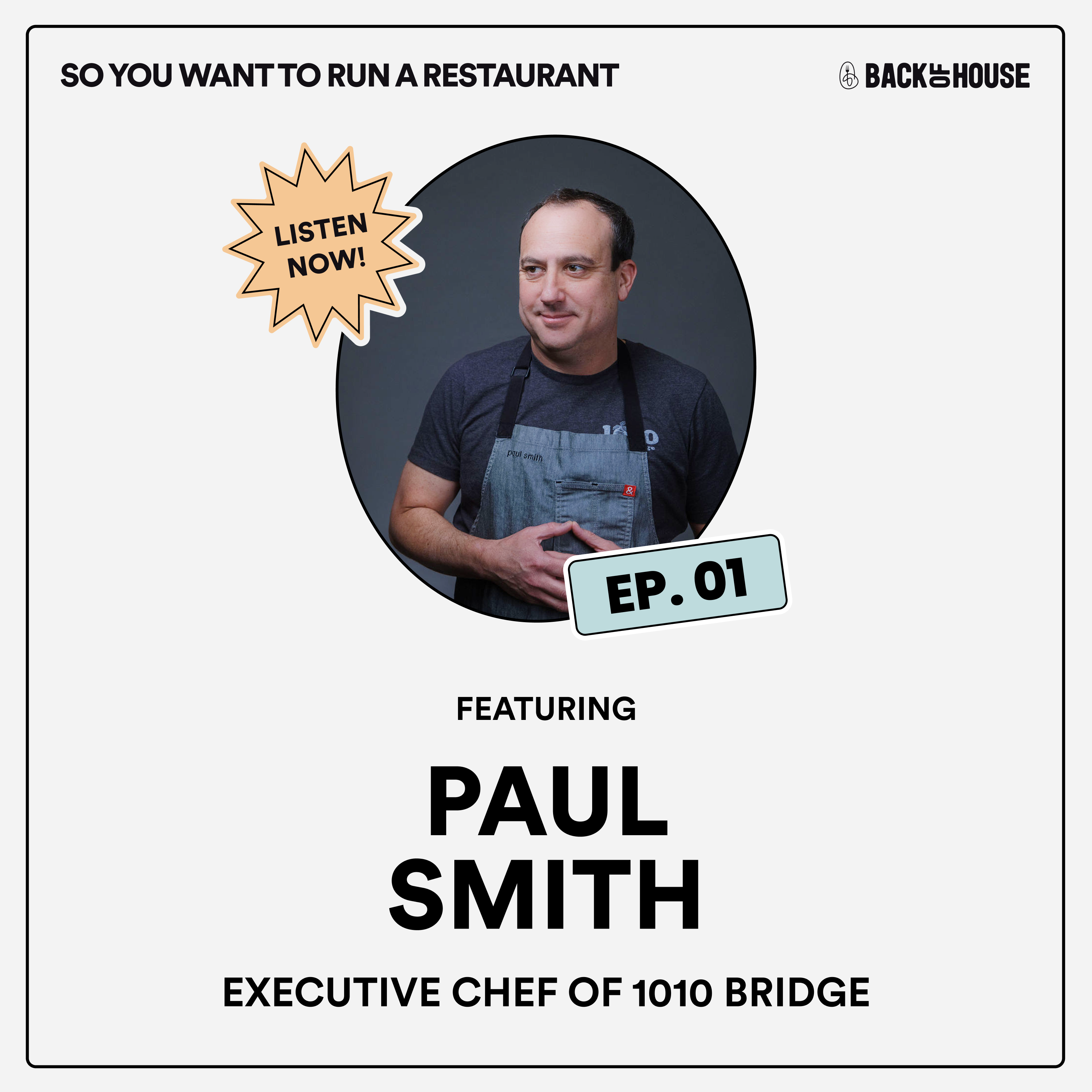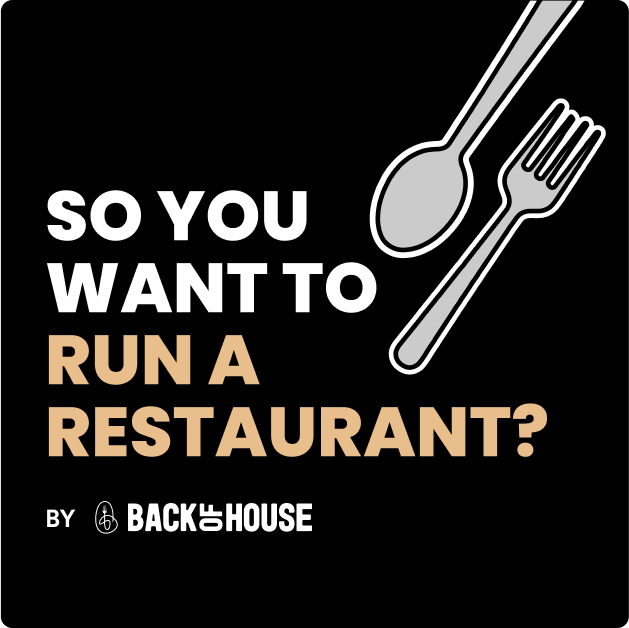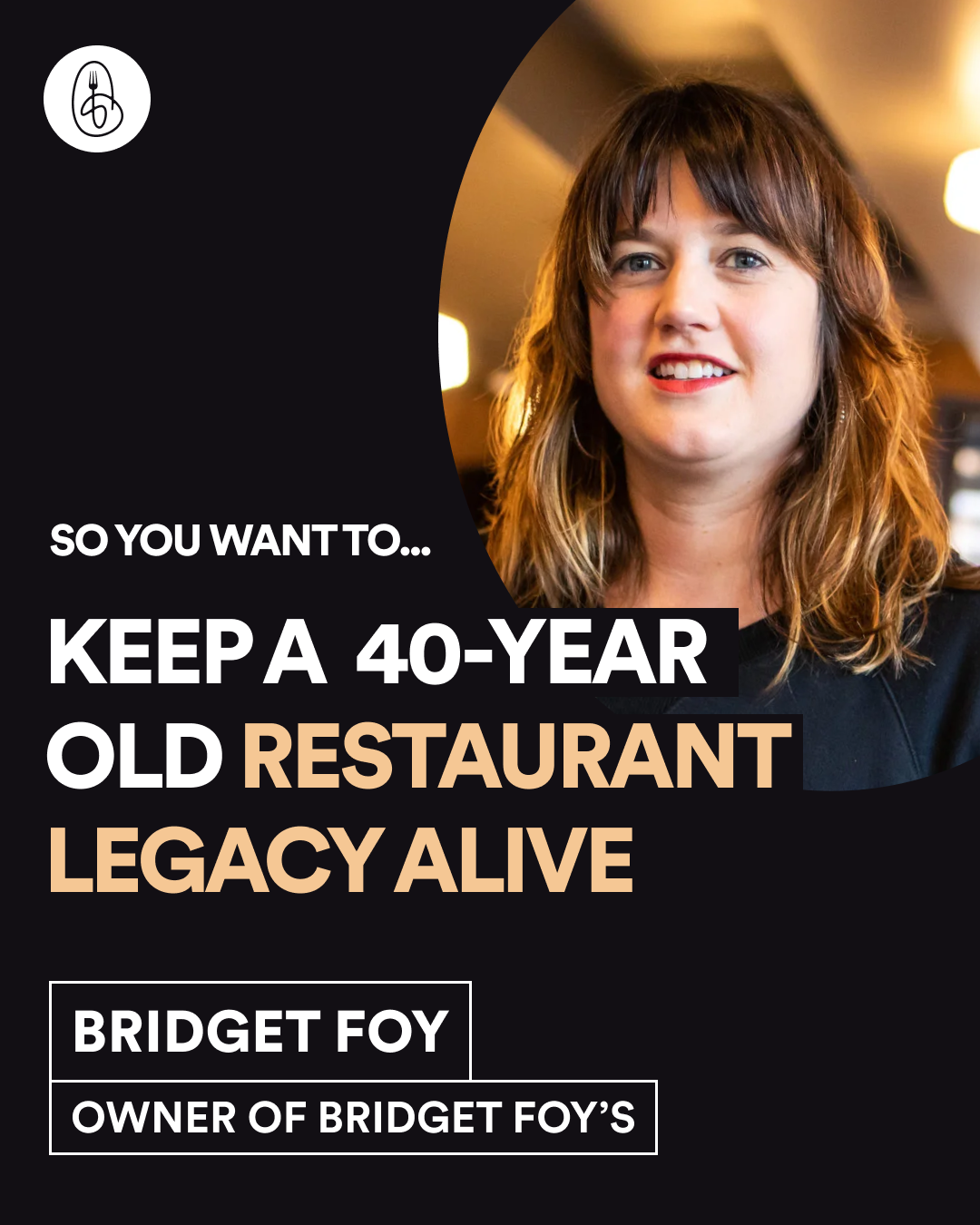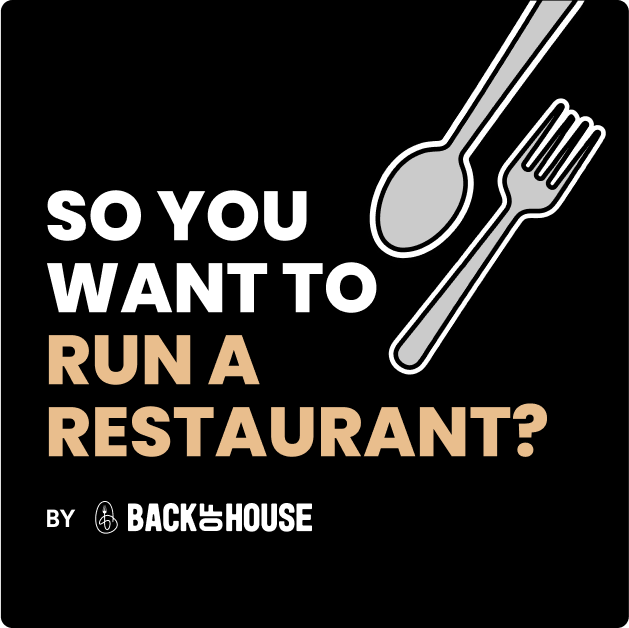Chef Paul Smith: So You Want to Be Appalachia’s First James Beard Award Winner

During our most recent episode of So You Want to Run a Restaurant, hosts Claudia Saric and Spencer Michiel welcomed James Beard Award winner and master of Appalachian cuisine Chef Paul Smith. As the owner and operator of 1010 Bridge, Chef Paul offers a combination of familiar regional dishes and reimagined favorites.
James Beard crowned Chef Paul 2024’s Best Chef in the Southeast Region for his unique upscale take on West Virginia comfort food.
Chef Paul calls it “fine-dining without pretentiousness.” The novel concept helped to make Chef Paul the first James Beard winner ever from his home state. In turn, his success is helping bring traditional Appalachian cuisine to wider acclaim.
5 Big Takeaways From Our Chat With Chef Paul Smith
So how exactly did Chef Paul turn a combination of family tradition, local ingredients, and innovative presentation into an award-winning concept? And what can we learn from his journey?
1. Use Your Restaurant To Tell Your Story
Heritage plays a huge part in Chef Paul’s story. His great-grandfather was an Italian immigrant who worked in West Virginia’s coal mining industry. With the industry still booming in those days, his son — Chef Paul’s grandfather — also went into the family business. But coal mining was just his grandfather’s day job.
“On the weekends,” remembers Chef Paul, “my grandfather worked at the local inn, the Glen Ferris in Dolly Bridge, West Virginia, and he did Italian nights. So, from basically the time that I could stand high enough on a milk crate, I would stir the Sunday gravy.”
That gravy was part of a formative family tradition. Paul’s family would gather every week at his great-grandfather's house for Sunday dinner.
As he recalls, “it was not a dull roar, but a loud roar of family – the smell of fresh bread, the smell of meat sauce, and just that classic Italian story of getting together every week, talking about our week, maybe a little argument, a lot of wine.”
The success of Chef Paul’s own 1010 Bridge is rooted in this kind of familial authenticity. His menu captures the very feelings he describes in his own personal story — the sounds, smells, and energy that made him who he is today.
2. Turn Your Concept Into an Experience
Chef Paul’s restaurants — which include The Pitch Sports Bar & Grill and Paulie’s Fine Italian — do more than just channel local flavors and traditions. They also capture a vibe. Customers get an experience that compliments the menu — elegant plates delivered with all the southern charm you’d hope for.
“We are inviting you into our home, our Appalachian home,” says Chef Paul. “You come in, we greet you warmly, we talk about where you came from, why you traveled here, and when you leave, we absolutely invite you back. I think West Virginia has this innate sense of hospitality.”
This is one of the big secrets to Chef Paul’s success. His restaurants package that sense of hospitality into a special customer experience. For locals, Chef Paul’s restaurants offer a new spin on the familiar. For out-of-town visitors, his restaurant is a friendly and welcoming doorway into the local culture.
3. Learn Everything You Can
Chef Paul may be recognized for putting his own local cuisine on the map. But the truth is, he traveled many miles before returning home — studying at the Culinary Institute of America (CIA) in New York and total immersion in Napa Valley’s wine country; working the pastry line at the Ritz Naples and grill line at the world-famous Biltmore in Asheville; serving as executive chef for the University of Charleston and even a sale-rep for a meat and seafood company called Buzz Food Service.
When you hear Chef Paul’s story, you realize just how much time, training, and passion went into his journey. “I just immersed myself in food and the culture and just really had a great time and put as much into my education as I possibly could,” he tells us.
This explains a lot about the success that Chef Paul enjoys today. There’s no such thing as an overnight success — he put in a lot of years in the kitchen and he traveled far and wide before returning to his roots. By the time he opened his first restaurant, he had a clear vision for what he wanted to do and how to do it. That kind of clarity is earned through experience.
4. Find Profitability in Tradition
West Virginia's cuisine is shaped by Appalachia's rugged terrain and sometimes harsh seasons. Chef Paul explains that generations of Appalachians have survived by making the most of the unique natural resources around them.
“In Appalachia,” says Chef Paul, “this is what we've done for decades. For generations, we’d use what we had at our fingertips — corn, beans, ramps, these wild things that are growing right here.”
Naturally, that type of local sourcing is very much on-trend these days. But Chef Paul has a different perspective. “It’s about using everything, not wasting, and really being resourceful. And that's what we do at all of our restaurants. The James Beard Foundation calls it sustainable, but as a restaurateur and as a person that employs over 200 people, I call it profitable.”
5. Invest In Your People
Chef Paul sees his restaurant’s success as a shared achievement. He even gets a bit sentimental when he describes the type of warmth, hospitality, and elegance his staff provides for guests. [We won’t spoil the story. You should hear it from Chef Paul himself.]
The point is, that kind of guest experience doesn’t just happen. It takes training, retention, and buy-in from employees. Chef Paul invests in all of these things. “We teach our chefs here,” says Chef Paul. “I educate them. And we have sent seven of our team through culinary school. We pay for it. We believe in education.”
Clearly, the investment is paying off.
See Who Else Is Making Industry Waves
At Back of House, we also believe in education. That’s why we gather together the most important innovations, industry trends, and expert insights every single week and deliver them straight to your inbox.
Sign up for the Back of House newsletter and stay in the loop!
Recent Episodes

Pitmaster Charles Wong: So You Want to Redefine BBQ with Fusion Flavor?
From finance to fire pits, Owner & Pitmaster of Umamicue, Charles Wong, shares how he left Wall Street behind for Chicago’s BBQ scene.
Listen to Episode
Bridget Foy: So You Want to Keep a 40-Year Restaurant Legacy Alive?
Bridget shares what it was like surviving a devastating 2017 fire, launching her second concept Cry Baby Pasta, and navigating the pandemic’s challenges. She dishes on Philly’s collaborative restaurant scene, lessons in leadership, and why the classic cheeseburger will never leave her menu.
Listen to Episode
Cultivating Culture and Growing Thoughtfully with Molly Irani of Chai Pani
We spoke with Molly Irani, co-founder of Chai Pani Restaurant Group, about building a different kind of restaurant culture while also creating a thriving, decorated restaurant group with five concepts across three cities and a popular CPG line.
Listen to Episode









